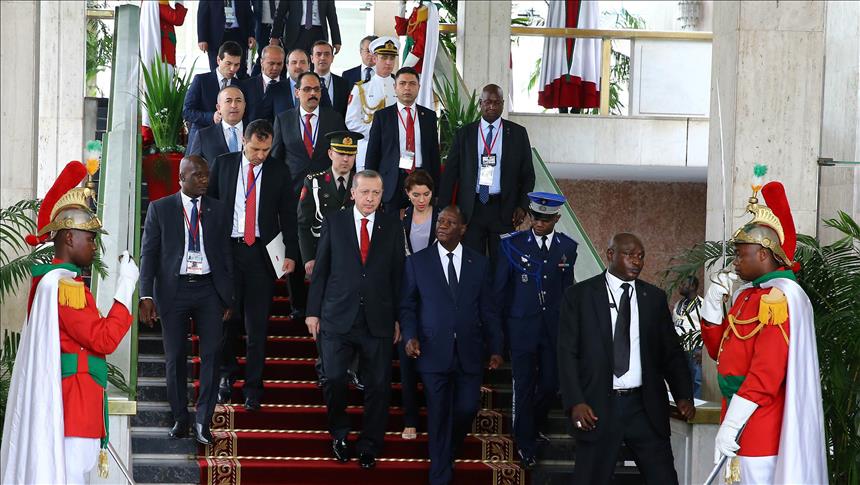
South Africa
By Hassan Isilow
DURBAN, South Africa
A Turkish professor visiting South Africa praised his country’s partnership with the African continent, saying that it is mutually beneficial to both parties.
‘‘We did not have a colonial or imperial past in Africa. Turkey has a blank past in Africa, which helps it today in forging new relations on the continent,’’ Professor Selim Argun of Istanbul University told Anadolu Agency Sunday, on the sidelines of a major conference on the history of Islamic civilization in the region being held in Durban, South Africa.
He said Turkey has opened several diplomatic missions in Africa in order to strengthen bilateral relations, while many Turkish non-governmental organizations (NGOs) are providing humanitarian assistance to the needy.
“Turkey’s interests in Africa could be summarized as a partnership among equals. Turkey was not a colonizing power. The Ottoman Empire was not a colonizing power. The most important and tangible proof of this is that none of the countries that were under Ottoman rule speak Turkish today,’’ he said.
The scholar added that countries that were under the Ottoman banner retained their own languages, culture, and identity.
He said Turkey’s interests in Africa include strengthening ties between Turkish and African businesspeople, intercultural exchanges, and supporting African students with scholarships, among others.
Argun said many African students have already benefited from Turkish educational scholarships and bursaries.
In 2005, declared the Year of Africa, Turkey began an outreach effort to Africa. Three years later, then-President Abdullah Gul hosted the first ever Turkey-Africa Cooperation summit in Istanbul, with representatives from across the African continent attending.
The African Union also declared Turkey a strategic partner in 2008.
The second Turkey-Africa cooperation summit was held in 2014 in Malabo, the capital of Equatorial Guinea. Several African heads of state, business leaders, and Turkish President Recep Tayyip Erdogan attended the three-day summit, which stressed the importance of their partnership.
A third summit is scheduled to be held in Turkey in 2018.
Last week, President Erdogan embarked on a four-day working visit to West African countries, including Ghana, Nigeria, Ivory Coast, and Guinea.
While in Nigeria, Erdogan pledged to help the country in its fight against terrorism.
"As a country which has itself combatted terrorism for a long time, any terror in Nigeria deeply wounds our hearts,” said Erdogan.
The president also expressed his interest in boosting bilateral economic ties with Nigeria.
“We have been following Nigeria’s economic growth closely. I am accompanied by a large number of businessmen…We hope to be able to obtain a positive outcome from this [Turkey-Nigeria business] forum [in the capital Abuja],” he said.
Professor Argun expressed optimism that Turkish-African relations will continue to grow.
“Unless there is a big political change in Turkey’s political landscape, Turkish interest in Africa will continue to increasingly grow over the next couple of years,” he said.
The academic said Turks are operating in Africa today with self-confidence and the trust of their African partners because they lack any history of colonizing Africans.
“Historically speaking, Turks are color blind and do not have racism. We don’t segregate based on skin color,’’ he told Anadolu Agency.
Turkey has provided millions of dollars in infrastructural development to a number of African countries but most notable among them is Somalia, which President Erdogan has visited twice.








